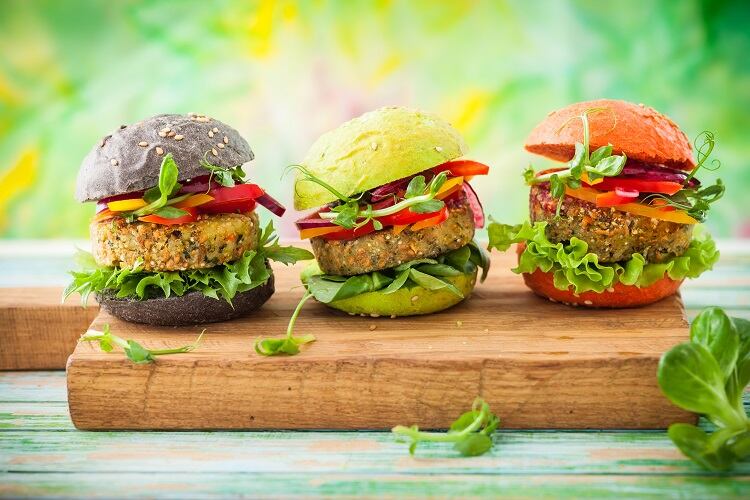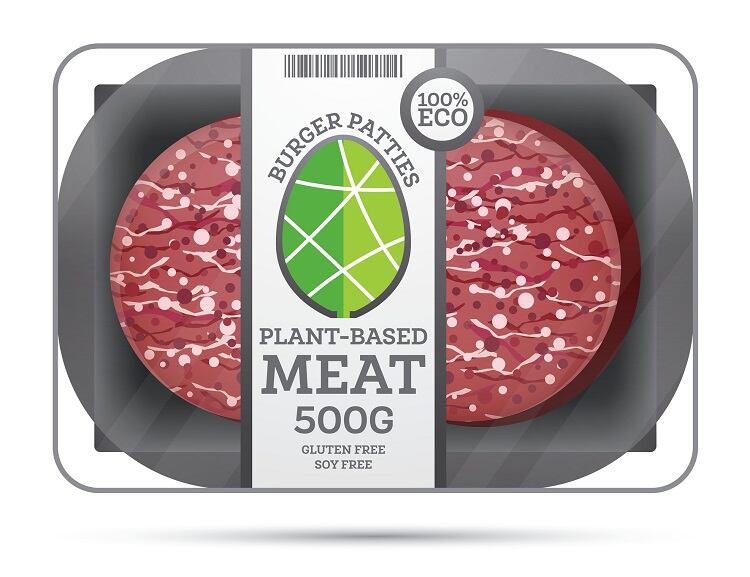What’s in a name? Quite a lot, if you’re marketing animal-free food to the masses.
Currently, a range of terms are used to describe animal-free products, from vegan to vegan-friendly, vegetarian, meat-free, or the big one: plant-based.
However, as the animal-free sector expands to include products that are not strictly ‘plant-based’, experts question whether the well-used term could become limiting.
A limiting term for a broadening category?
Plant-based is a burgeoning sector, with European plant-based protein sales expected to exceed €250m by 2022.
Technological advancements are helping to push the animal-free category forward. What once was a sector dominated by soy-based burger alternatives, has now developed into one championing microorganism fermentation processes and, where regulation allows, cellular agriculture.
Quorn Foods makes perhaps the best-known example of microorganism-based protein for the animal-free market. The Monde Nissin-owned company makes its products from a type of fungus called Fusarium venenatum.
When fed with carbohydrates derived from maize and wheat, and fermented in air-lift fermenters, the microorganisms produce mycoprotein, which Quorn then uses across its product line of meat alternatives.
Other examples include Israeli start-up Kinoko-Tech, which is producing a new alternative protein from fungal mycelium growing on legumes and grains, and Dutch start-up The Protein Brewery, which has developed a fungi-based alternative protein named Fermotein.

While these alternative proteins are suitable for those following a plant-based diet, they are not, strictly speaking, plant-based themselves.
In fact, fungi are a separate kingdom to both plants and animals, which is why Quorn avoids the term ‘plant-based’ – opting instead for ‘meat-free’ or ‘vegan’, depending on the product.
Using the term ‘plant-based’ for fungi alt protein products, therefore, would be misleading.
A question of geography
Carlotte Lucas, Corporate Engagement Manager at the Good Food Institute (GFI) Europe, acknowledges the breadth that plant-based products span.
While fungi-based products are indeed sold alongside plant-based offerings, she stressed they are labelled ‘slightly differently’ on-pack.
Geography should also be taken into account, she told the FoodNavigator 2021 Digital Summit: Positive Nutrition. “Different terminology works better in some countries better than others. In some countries, for example, ‘vegan’ is accepted as a positive statement. In others, it’s really negative.”
A 2019 study analysing different diet descriptions across Belgium, Spain, Denmark, and the Netherlands, backs up Lucas’ position.
In Belgium and the Netherlands, the term ‘plant-based diet’ was found to be more appealing than ‘vegan’ or ‘vegetarian’. In Demark and Spain, however, consumers were indifferent to the term ‘plant-based’. This indicates that in some places, ‘plant-based’ is more widespread and accepted, whereas in others, “there still needs some work in promoting diets that are predominantly vegetarian or plant-based”, noted F.J. Armando Perez-Cueto from the University of Copenhagen at the time.
Lucas suggested more research should be done to determine acceptance of ‘vegan’ for food marketing purposes. “I don’t think there has been enough research done on this, it’s definitely something we’re thinking more about as an industry as we grow.”

Annika Boström-Kumlin, Chief Marketing Officer at Verso Foods-owned Beanit, agrees. In Finland, where Beanit makes plant-based products from fava beans, the term ‘vegan’ is ‘a positive word for some’, she told delegates at the event. “For others, it’s quite distancing.”
Boström-Kumlin suggested a more inclusive category term, that incorporates both vegan and plant-based, could be described as ‘a category of responsible choices’. “Whether it is for health, or for the planet, I think that’s the way to look at it going forward, by widening the perspective of it.”
‘Let’s not add to the confusion’
Others feel that introducing a new term could ‘increase consumer confusion’ around animal-free terminology.
According to the British Nutrition Foundation (BNF), many in the UK are already confused about the term ‘plant-based’. A recent survey conducted by YouGov on behalf of BNF revealed this to be the case.
It should be noted that BNF defines a ‘plant-based diet’ as one ‘mostly based’ on foods derived from plants, such as grains, vegetables, fruit, pulses and nuts, but that also include a ‘small proportion’ of animal derived foods such as meat, fish, eggs and milk.
In the survey, a majority believed that a plant-based diet meant cutting out meat and sometimes dairy completely. Forty-one percent of respondents said that a plant-based diet means following a vegan diet, and 20% equated it with following a vegetarian diet. A total of 8% said they did not know what a plant-based diet was at all.

“There is definitely a lot of confusion in the UK amongst consumers,” said BNF Nutrition Scientist Sarah Coe. “So to broaden it out would perhaps add to the confusion, if people are not sure at the moment what exactly [plant-based] is.”
Is the animal-free sector moving faster than our vocabulary?
Leonardo Rubio Anselmi, Strategic Marketing Manager of Beverages and Nutritional Bars at IFF, agrees that increasing the number of terms could contribute to consumer confusion.
That is not to say that new terminology will not have a place in the coming years, however. The term ‘plant-based’ suits a sector championing plants, suggested the marketing manager. But looking forward into the future, over the next five to 10 years, the segment is going to evolve.
“It started as a plant-based alternative. It could go fully plant-based [on one hand], or it could become fully alternative on the other. It is a matter of how far into history, or into the future, we look.”
For Stefan Uhlamm, Head of Cereals, Business Unit Cereals, Nuts and Pulses at Döhler, the debate reflects the speed at which the plant-based sector is accelerating.
“This is the best proof that the development of [this category] is faster than even the development of our language.”
In five years’ time, Uhlamm said we may well laugh in hindsight at our inability to find the right words. “Time will tell. It might be that we go from the alternative (saying what a product is not), then to plant-based (saying what it is), and then realising we were not precise enough.
“I think there will be a word. Unfortunately, I don’t have it right now…but this is definitely showing that we are more than on the right track, and moving faster than some would believe.”
Missed any of the FoodNavigator Digital Summit 2021: Positive Nutrition? Don’t worry, you can still access all of our sessions and handouts, which will be available on-demand for the next 90 days. Click here to REGISTER FOR FREE.




